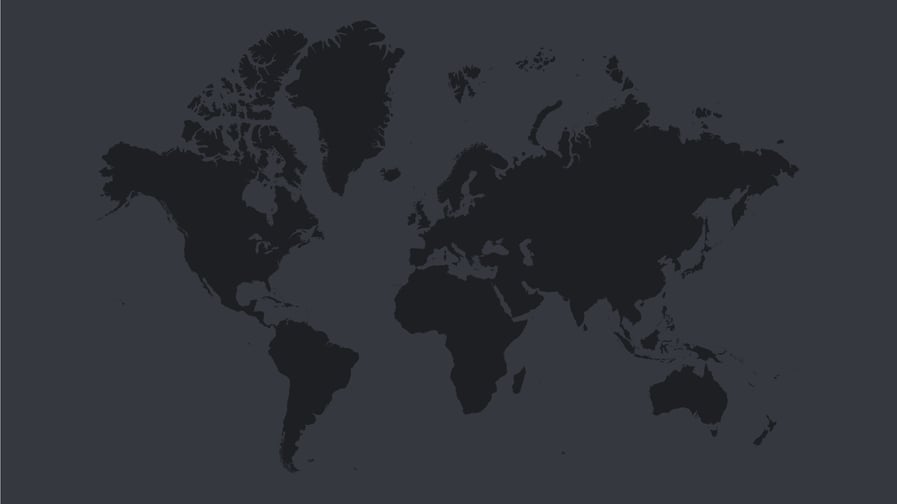War
Palestinian Territories
On 18 March, Israel launched large-scale aerial attacks on the Gaza Strip, marking the resumption of fighting in the Palestinian Territory. At least 600 people were killed across northern, central, and southern parts of the territory within 24 hours, while hundreds more were injured. Israeli Prime Minister Benjamin Netanyahu stated that the attacks came in response to Hamas’s refusal to release the remaining 59 Israeli hostages, as well as the group’s refusal to extend the first phase of the ceasefire agreement. Israel has long been reluctant to progress to the second phase of the agreement, which would mandate a permanent truce and the withdrawal of Israeli forces, and therefore tried to pressure Hamas into extending the first phase, by blocking access to humanitarian aid. High numbers of casualties are expected to continue amid renewed Israeli attacks across Gaza.
War
Yemen
On 15 March, the US launched large-scale airstrikes across Houthi-controlled parts of Yemen, including Saada, Hodeidah, Ibb, Al Bayda and Taiz governorates, and the capital city, Sana’a. At least 53 people were killed and 98 others were injured. The Houthis responded by claiming several attacks on a US aircraft carrier in the following days, while the US continued striking dozens of Houthi targets in Yemen. These attacks followed the Houthis’ stated intent to resume attacks on Israel-linked commercial ships in the region, unless Israel resumed aid shipments to Gaza. US President Donald Trump announced that the US will continue such operations in Yemen until the Houthis cease their attacks on shipping in the Red Sea and Gulf of Aden. President Trump also announced that he will hold Iran accountable for any further Houthi attacks, likely to compel Iran to step in and pressure the Houthis to de-escalate. This exchange highlights the resurging tensions in the Middle East, and further attacks are likely in the coming months.
Civil Unrest
South Korea
In March 2025, hundreds of thousands of political activists joined near-daily protests in central Seoul – both in support of and against suspended President Yoon Suk Yeol – while the constitutional court deliberated on its impeachment verdict. Yoon faces charges of inciting an insurrection after he declared martial law on 3 December 2024, a move that was overturned hours later through a parliamentary vote. Yoon’s impeachment and temporary detention has highlighted the deepening political divisions among South Korea’s public, exacerbated by growing animosity between the governing People Power Party and opposition Democratic Party of Korea. Large-scale political demonstrations are likely to continue in the coming months, regardless of the final decision by the constitutional court.
Terrorism
Pakistan
On 11 March, dozens of Baloch separatist militants hijacked a passenger train carrying hundreds of people in a remote, mountainous area of Sibi District, Balochistan Province, en route from Quetta to Peshawar. The militants held the train and its passengers hostage for more than 30 hours while the Baloch Liberation Army (BLA) negotiated with authorities for the release of detained Baloch political prisoners. Security forces launched a rescue operation, and secured the release of 339 passengers, while 33 BLA militants and 31 hostages, soldiers and railway staff were killed in the subsequent clashes. Baloch militant attacks have increased across Balochistan Province in recent years, although this hijacking marks a departure from the BLA’s usual tactics, demonstrating their increased brazenness.
Civil Unrest/Terrorism
United States
Since late January, activists have held multiple demonstrations outside car dealerships and showrooms around the country to denounce the CEO of Tesla, Elon Musk. Protesters have denounced his involvement with President Donald Trump’s administration, particularly his role in firing US federal workers. While most protests have been peaceful, numerous incidents of vandalism, graffiti and violent attacks have been reported, targeting vehicles, dealerships and charging stations. For example, on 20 January, an assailant detonated improvised explosive devices at a dealership in Salem, Oregon, shattering windows and striking seven vehicles, causing an estimated USD 500,000 in damages. Additionally, on 7 March, an arson attack was reported at a dealership in Loveland, Colorado State; and on 6 March, unidentified assailants fired shots at a dealership in Portland, Oregon State, which damaged three cars and shattered windows. Further violent incidents and protests targeting the company are likely in the coming weeks.
Civil Unrest
Brazil
On 16 March, thousands of activists demonstrated on Copacabana Beach, Rio de Janeiro, in support of former President Jair Bolsonaro. Brazil’s chief prosecutor formally accused Bolsonaro in February 2025 of leading an attempted coup after he was defeated by incumbent President Luiz Inácio Lula da Silva in the 2022 general election. Bolsonaro has dismissed the charges as being politically motivated. On 26 March, Brazil’s Supreme Court elected to accept the charges and place Bolsonaro on trial, although the dates of the trial have not been provided. The development has once again exposed divisions in Brazil’s vast electorate, with some welcoming the news, and Bolsonaro’s supporters decrying it. Further protests related to the charges are likely in the coming weeks, particularly if the Supreme Court elects to put Bolsonaro on trial.
Terrorism
Columbia
On 19 March, unidentified militants detonated explosives on the Bicentenario and Caño Limón-Coveñas oil pipelines in the municipalities of Fortul and Saravena in Arauca Department. The explosions damaged both pipelines and caused a leak in the Fortul line. Residents of the area were urged to stay away over fire risks, and the military has been deployed to secure the area. While no group has claimed the attack, Ejército de Liberación Nacional (ELN) militants are present in the area and frequently target state-owned energy infrastructure. The government suspended peace talks with the ELN in February 2025, and further attacks are likely in the coming months.
War
South Sudan
In March, clashes broke out in Nasir, Upper Nile State, between the South Sudan People’s Defence Forces (SSPDF) and the White Army, an independent armed group composed of Nuer ethnic fighters. The White Army, which fought alongside First Vice President Riek Machar’s forces during South Sudan’s civil war (2013–2018), captured the city on 4 March, killing an SSPDF general and dozens of soldiers during an attempted evacuation two days later. Meanwhile, on 5 March, security forces arrested Petroleum Minister Puot Kang Chol and several of Machar’s allies while also surrounding Machar’s home in Juba. These developments could threaten the peace deal that ended the civil war, under which Machar serves as the first vice president alongside his longtime rival, President Salva Kiir.
War
Ethiopia
On 11 March, a faction of the Tigray People’s Liberation Front (TPLF), led by Debretsion Gebremichael (TPLF-D), seized control of Adigrat in Tigray Region from a rival TPLF faction. This faction, led by Getachew Reda (TPLF-G), is part of the region’s interim administration established under the 2023 peace agreement with the federal government. The factional battle has heightened tensions between Ethiopia and Eritrea, as both TPLF-G and the federal government accuse Eritrea of meddling in Ethiopia’s internal affairs and fuelling a proxy conflict by supporting and colluding with the TPLF-D. Relations between Ethiopia and Eritrea have deteriorated significantly over the past two years. Further clashes between the rival TPLF factions would heighten the risk of conflict between the two countries.
War
Ukraine/Russia
On 18 March, Russian President Vladimir Putin agreed to a 30-day limited ceasefire, under which Russia would stop targeting Ukrainian energy infrastructure, with Ukrainian President Volodymyr Zelensky subsequently accepting the terms. However, Putin has refused to commit to the full 30-day ceasefire that the US and Ukraine agreed to after talks in Saudi Arabia earlier in March. In fact, on 22 March, Ukrainian Defence Forces reportedly engaged in 147 combat clashes with Russian forces along the frontline. There remains significant uncertainty over whether Russia will agree to a broader de-escalation of military operations in Ukraine, particularly as it has made steady gains in Donetsk Oblast in recent months while reclaiming areas of Russia’s Kursk Oblast, where Ukraine had captured territory during its August 2024 incursion.
Civil Unrest
Germany
On 10 March, unionised ground staff at 13 airports countrywide held a 24-hour strike, prompting travel disruptions affecting roughly 500,000 passengers. The strike came amid contract renegotiations in which workers, represented by Vereinte Dienstleistungsgewerkschaft (Ver.di), demanded higher wages and additional leave days. Representing about two million public sector workers, Ver.di has been engaged in collective bargaining rounds across sectors, prompting several strikes affecting public transport and aviation in early 2025.
Civil Unrest
Spain
In early March, several civic groups began localised protests against tourism and threatened to escalate during the peak tourist season from June to August 2025. Protests have included marches, blockades and displaying banners as well as directly antagonising tourists visiting Spain’s tourist hotspots including Barcelona, Tenerife and Mallorca. Many Spanish residents oppose high levels of tourism in the country, blaming it for the cost-of-living crisis and environmental degradation in recent years. Further disruptive incidents and protests targeting tourists and popular tourist areas are likely in the coming weeks.




